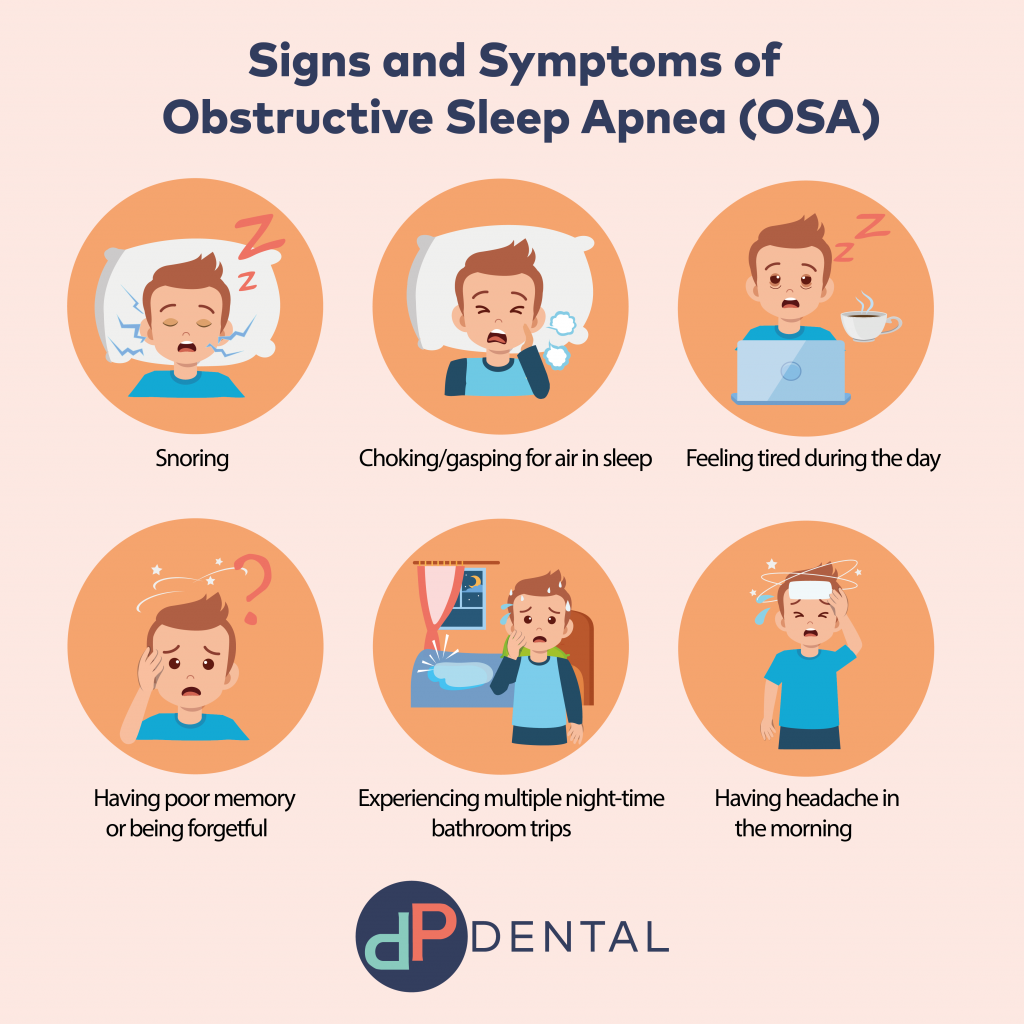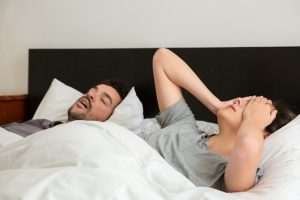Do you often wake up feeling tired? It turns out you are not alone.
In a recent survey, about 61 per cent of Singaporeans shared that they often wake up feeling tired. And one in three Singaporeans suffers from moderate to severe sleep apnea, and one in 10 suffers from severe sleep apnea.
You might be getting enough hours, but you might not be getting the most restful type of sleep. Poor sleep quality is mainly related to not breathing well during sleep.
Various factors can cause poor sleep, including sleep disorders such as sleep apnea.
People with obstructive sleep apnea (OSA) stop breathing repeatedly in their sleep because of a complete or partial blocking of their airway. This leads to low oxygen levels and causes fatigue, excessive daytime sleepiness and headaches.
What Causes Sleep Apnea?
All of the muscles in the body relax during sleep. Normally, the throat muscles relax but do not block the airway. In patients with obstructive sleep apnea, the airway becomes temporarily blocked or narrowed during sleep. This blockage reduces air pressure and prevents air from flowing normally into the lungs.
Symptoms of Sleep Apnea
Do you feel tired and sleepy throughout the day? Check if you have any of these symptoms:
- 🚩 Snoring
- 🚩 Waking up suddenly after gasping or choking
- 🚩 Waking up with a dry mouth
- 🚩 Feeling tired and sleepy during the day
- 🚩 Waking up with a headache
- 🚩 Trouble concentrating, forgetfulness, or crankiness
When we don’t get enough quality sleep, we can’t function well throughout the day. Studies show that if we don’t breathe well during sleep, we increase the risk of obesity, diabetes, hypertension and cardiovascular issues.

If you are a parent, it is important to observe your kids’ sleeping habits too.
If our children don’t sleep well, they will miss out on restorative sleep that helps them grow and develop to their full potential.
Have you noticed that your child:
- 🚩 Snores
- 🚩 Drools excessively
- 🚩 Breathes through the mouth
- 🚩 Wets their bed
- 🚩 Tosses and turns
- 🚩 Grinds teeth
- 🚩 Sleep walks
We suggest that you 𝐜𝐨𝐧𝐬𝐮𝐥𝐭 𝐚 𝐝𝐞𝐧𝐭𝐢𝐬𝐭 𝐭𝐫𝐚𝐢𝐧𝐞𝐝 𝐢𝐧 𝐬𝐥𝐞𝐞𝐩 𝐦𝐞𝐝𝐢𝐜𝐢𝐧𝐞, 𝐚𝐧 𝐄𝐍𝐓, 𝐨𝐫 𝐚 𝐦𝐲𝐨𝐟𝐮𝐧𝐜𝐭𝐢𝐨𝐧𝐚𝐥 𝐭𝐡𝐞𝐫𝐚𝐩𝐢𝐬𝐭 𝐢𝐟 you or your child have any of the symptoms listed above. If left untreated, sleep disorders may significantly affect your child’s growth, well-being, and behaviour.
The Secret to Good Sleep
To get a good night’s sleep, it is crucial that you breathe well, and through the nose. Studies have found that breathing through the mouth worsens obstructive sleep apnea (OSA).
𝐈𝐧 𝐃𝐫 𝐘𝐮𝐞 𝐖𝐞𝐧𝐠 𝐂𝐡𝐞𝐮’𝐬 𝐰𝐨𝐫𝐝𝐬, “𝐁𝐫𝐞𝐚𝐭𝐡𝐞 𝐛𝐞𝐭𝐭𝐞𝐫 𝐝𝐮𝐫𝐢𝐧𝐠 𝐭𝐡𝐞 𝐝𝐚𝐲 𝐬𝐨 𝐭𝐡𝐚𝐭 𝐲𝐨𝐮 𝐜𝐚𝐧 𝐛𝐫𝐞𝐚𝐭𝐡𝐞 𝐛𝐞𝐭𝐭𝐞𝐫 𝐚𝐭 𝐧𝐢𝐠𝐡𝐭 𝐟𝐨𝐫 𝐠𝐨𝐨𝐝 𝐬𝐥𝐞𝐞𝐩.”
Here are some oral habits we should adopt to get deep, restful sleep:
- 💁🏻♀️ Keep your lips together
- 💁🏻♀️ Put your tongue up to the roof of your mouth
- 💁🏻♀️ Breathe through your nose
- 💁🏻♀️ Swallow properly (towards the back of the throat)
Watch Dr Yue Weng Cheu (Founder & Clinical Director of DP Dental) share the secret to good sleep in the video below:
Sleep Apnea Treatment in Singapore at DP Dental
At DP Dental, we have dentists trained in sleep medicine. Therefore we can screen and effectively treat adults and children for sleep-related breathing disorders.
Through myofunctional training, we can help you retrain your muscles so you can breathe and sleep better. We can also customise oral sleep devices to prevent snoring and help you get a better night’s sleep.
These devices treat snoring and sleep apnea by advancing your lower jaw forward and opening your airway at the back of your throat.
There are benefits of using oral sleep devices over the conventional CPAP machine.
These devices are:
👉 Light weight and portable – so you don’t have to worry about carrying around big bulky devices when travelling.
👉 Easy to maintain
👉 Silent
👉 Able to prevent snoring and teeth grinding
If you snore or have sleep apnea symptoms and want to learn more about oral sleep devices and how they can help you get a better night’s sleep, contact us at 62820122 to schedule an appointment with Dr Yue Weng Cheu. Dr Yue is trained in Sleep Medicine at TUFTS University, Boston. He also has excellent experience with muscle training (especially the tongue) and breathing re-retraining to help sleep.
We’re here to help you, so you don’t have to suffer in silence with sleep issues.
Also READ: What is myofunctional therapy? How do I know if my child needs it?




